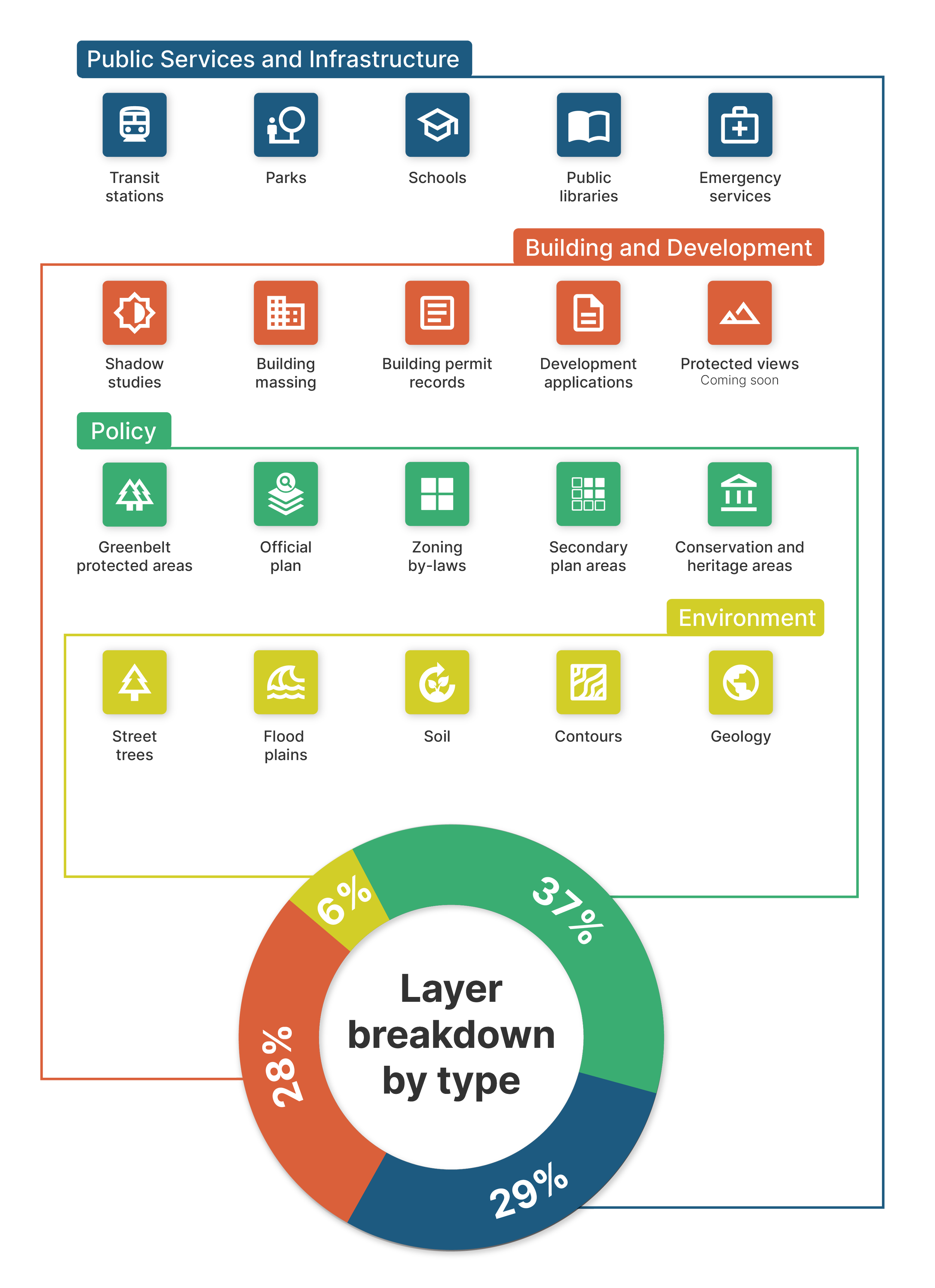The Life Saver for City Planning: Ratio.City Saves Time, Sanity, and Staff Hours
Canada’s housing crisis isn’t just about land or construction costs; it’s also about speed. Across the country, delays in planning and approvals are stalling urgently needed housing projects. These delays are caused by outdated, manual systems that slow down everything from early feasibility checks to full rezoning and site plan approvals.
For planners, developers, and municipal decision-makers, the stakes are high. Every extra month in the approval process increases costs, delays new housing, and makes projects less viable. Ratio.City, a Canadian-made planning tech platform, is helping municipalities break through that limitation with smarter, faster digital tools. Here's how it's changing the game.
The Problem: Manual Work Slows Down Housing
Before a project even begins, developers must spend hours evaluating whether a site is viable. Without automation, this process involves a series of time-consuming manual steps, including:
Zoning and code review
Overlay and constraint analysis
Heritage status checks
Proximity to transit and infrastructure
Parcel data and ownership review
Contextual analysis
3D massing and modeling
These steps are essential, but they're painfully slow. On forums like Reddit, industry professionals share stories of rezoning timelines stretching over a year, even with policy support. One developer noted: “Rezoning... with a strong policy takes a year or a year and a half” (Reddit, 2024).
A striking example comes from Victoria, B.C., where it reportedly took 896 days and 1,549 staff hours to approve just 18 townhouses at 902 Foul Bay Avenue (Reddit, 2024). As one commenter bluntly put it: “The process is broken.” These stories, while anecdotal, reveal a deeper truth: manual planning systems are draining time, staff capacity, and money from housing delivery.
Even the early steps are resource intensive. One developer shared that they spend four hours per project just reviewing zoning codes (Reddit, 2024). Multiply that across dozens of sites, and the delays add up quickly.
How Ratio.City Speeds Up Planning
Centralized, Real-Time Data Access
Ratio.City integrates over 1,000 datasets, from zoning and infrastructure to environmental and demographic data, into a single platform. This lets users instantly evaluate key site constraints and opportunities without toggling between disconnected systems
Faster Scenario Modeling and Impact Forecasting
With layered data and visual tools, planners and developers can simulate multiple development scenarios and assess impacts in minutes. This replaces hours of spreadsheet work and manual research with dynamic, evidence-based decision-making.
Efficient Collaboration, Application Management & Public Engagement
The platform centralizes application tracking and documentation through a shared dashboard, cutting weeks of back-and-forth between municipal departments. It also helps staff prepare for public consultations with dynamic maps and automated reporting tools, leading to clearer communication and smoother approvals.
Municipal staff save up to 5 hours per Planning Application Committee (PAC)
Developers save 6-9 hours per site evaluation
Some users report over 50%-time savings, especially in early-stage feasibility (Ratio.City, 2025).
Conclusion: A Smarter Path to More Housing
Our platform serves as a response to one of the most urgent barriers in Canadian housing: approval delays. By automating manual processes, improving transparency, and enabling better collaboration, it allows municipalities and developers to move faster, without sacrificing quality or accountability.
For planners, it's a smarter way to manage complex data. For developers, it means faster site selection and detailed reports. And for policymakers, it represents a tool to help cities meet their housing goals, on time and on budget. The housing crisis won’t be solved by one tool, but technology like Ratio.City is proving that smarter systems can help us build faster, better, and more affordably.





